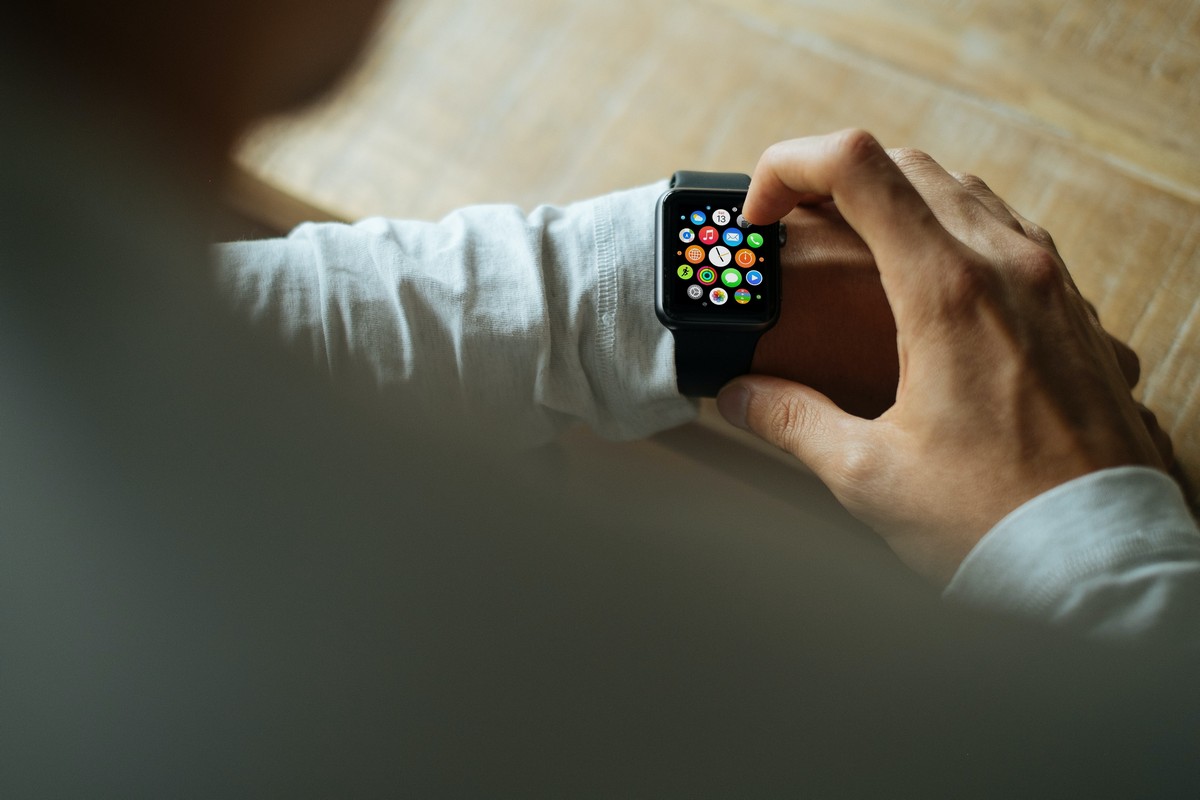By Dennis Shelly
Introduction
In our modern and fast-paced world, technology has changed how we live, work, and connect with others. One standout innovation that has become a part of our daily routines is the smartwatch. These handy devices are more than just timekeepers or fashion accessories; they are versatile companions equipped with various features to boost our productivity, health, and overall well-being.
Imagine smartwatches as tiny wrist computers. With the advancement of technology, smartwatches have become more sophisticated and can now detect falls, monitor heart rate, track steps, and even provide GPS location. They are now being used as health monitoring and emergency detection devices.
Health Monitoring
Top of Form
One cool thing smartwatches do is assist doctors and nurses in looking after people, even from a distance. This is called remote patient monitoring. Smartwatches can also monitor heart rate and track steps, which can help individuals keep track of their fitness goals.
Types of health monitoring in smartwatches include:
Heart rate monitoring: Smartwatches can track heart rate using a technique called photoplethysmography, which measures blood flow in the wrist.
Blood oxygen levels: Some smartwatches, like the Apple Series 6 and Series 7, can measure blood oxygen levels.
Steps and exercise: Smartwatches can track daily steps, distance, and calories burned, as well as monitor various activities like running, walking, and cycling.
Stress monitoring: Some smartwatches can track stress levels, helping users manage stress more effectively.
Sleep tracking: Smartwatches can monitor sleep patterns, helping users improve their sleep habits.
Emergency Detection
Some smartwatches come with a dedicated SOS button that can be pressed in case of an emergency. The SOS button connects the wearer to a 24/7 monitoring center, where a dispatcher will communicate live over the built-in two-way speaker to assess the wearer’s needs.
Fall and Crash Detection
According to Consumer Reports, some smartwatches from Apple, Google, Samsung, and other brands can detect if the wearer has had a fall and call for assistance. For a number of people, this could be an alternative to the medical alert systems that use pendants or bracelets. The Apple Watch, for example, can sound an alert if the wearer takes a hard tumble. Then onscreen instructions will ask if the wearer needs help and if they want to send a message to one of their contacts. If the wearer doesn’t respond, the Apple Watch contacts 911. The smartwatch needs to be within Bluetooth range (roughly 30 feet) of the wearer’s phone, which the watch uses to make the call unless the watch has a built-in cellular connection capability.
Comparing Popular Smartwatches:
Pros:
- Comprehensive health and fitness tracking along with crash detection
- Compatible with iPhone and iOS devices
- Wide range of apps and integrations
- Stylish design and good build quality
Cons:
- Limited compatibility with Android devices
- Limited battery life compared to some competitors
- Some features may require a cellular connection or subscription
Pros:
- Compatible with Android and Samsung devices
- Wide range of apps and integrations
- Long battery life
- Excellent display quality
- Robust fitness tracking features
Cons:
- Limited compatibility with iPhone and iOS devices
- Limited third-party app support compared to competitors
Pros:
- Extensive fitness tracking and sleep analysis
- Long battery life
- Wide range of affordable models
- Compatible with both Android and iOS devices
- User-friendly interface
Cons:
- Limited compatibility with some smartphone features
- Design may not be as stylish as some competitors
Garmin Fenix 7X Sapphire Solar:
Pros:
- Premium build quality and rugged design
- Advanced sports and fitness tracking
- Solar charging for extended battery life
- Detailed mapping and navigation features
- Compatible with both Android and iOS devices
Cons:
- Higher price point
- Complex for casual users
- Some features may require a cellular connection or subscription
Pros:
- Well-rounded fitness tracking
- Music storage and playback
- Animated workouts
- Good battery life
Cons:
- Well-rounded fitness tracking
- Music storage and playback
- Animated workouts
- Good battery life
Conclusion
Smartwatches offer a wide range of health monitoring features, including heart rate monitoring, blood oxygen levels, steps, exercise, stress monitoring, sleep tracking, fall detection, and crash detection. Apple Watch, Samsung Watch, Fitbit, Garmin Fenix 7X Sapphire Solar, and Garmin Vivoactive 4 are some popular options with different strengths and weaknesses. It’s essential to choose a smartwatch that best suits your needs and preferences, considering factors such as compatibility with your smartphone, battery life, and specific health tracking features. However, if you are still not sure which choice is right for you or still have some general questions, our eggsperts are here to help.
Please contact us by visiting our website at www.eggheadit.com, by calling (760) 205-0105, or by emailing us at tech@eggheadit.com with your questions or suggestions for our next article.
IT | Networks | Security | Voice | Data


0 Comments